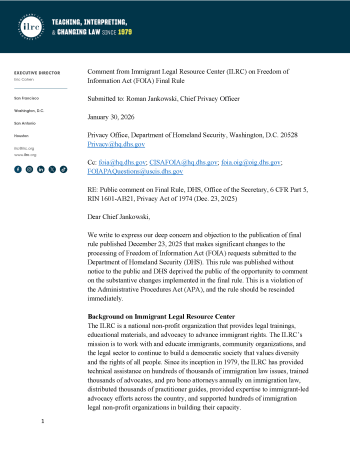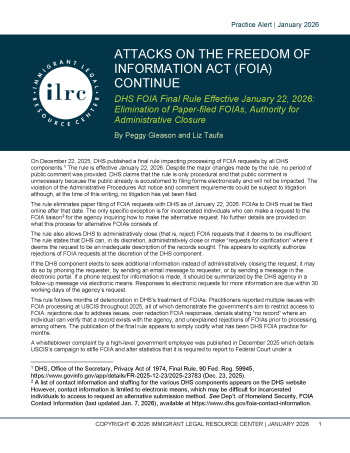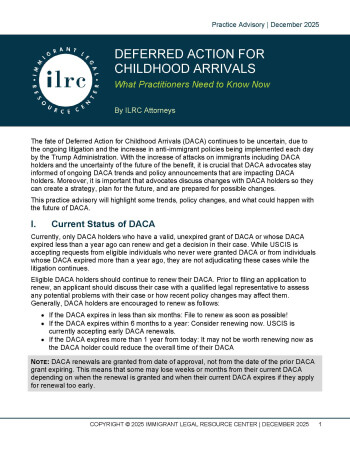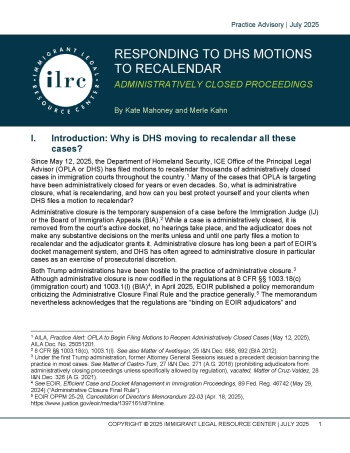Term Page
DACA 
ILRC submitted this comment to DHS opposing recent changes to FOIA rules effective January 22, 2026 that restrict public access. DHS published a final rule in violation of the Administrative Procedures Act by unlawfully bypassing public notice and comment. The rule eliminates paper filing of FOIA requests and allows DHS in its discretion to administratively close requests that it deems to insufficiently describe the records sought.

On December 22, 2025, DHS published a final rule impacting processing of FOIA requests by all DHS components. The rule is effective January 22, 2026. Despite the major changes made by the rule, no period of public comment was provided. The rule eliminates paper filing of FOIA requests with DHS as of January 22, 2026. FOIAs to DHS must be filed online after that date. The rule also states that DHS can, in its discretion, administratively close or make “requests for clarification” where it deems the request to be an inadequate description of the records sought.

This practice advisory will highlight some trends, policy changes, and what could happen with the future of DACA.
On July 28, 2025, the ILRC submitted a comment opposing a new government proposal to add extra questions to nine immigration forms, including applications for naturalization, asylum, and green cards.
On July 16, 2025, ILRC submitted a comment opposing a new U.S. Citizenship and Immigration Services (USCIS) policy that allows the agency to use “derogatory information” against immigration applicants without always disclosing it.
On May 2, 2025 the ILRC submitted a letter signed by 115 organizations has opposing a U.S. Citizenship and Immigration Services (USCIS) proposed rule to expand the information collected on immigration forms.
On May 2, 2025 the ILRC submitted a comment opposing a proposed U.S. Citizenship and Immigration Services (USCIS) rule that would expand the collection of personal information from immigration applicants.
On May 5, 2025 the ILRC submitted a comment opposing a proposed U.S. Citizenship and Immigration Services (USCIS) rule that would require immigrants to disclose their social media identifiers on application forms.

In recent months, the Department of Homeland Security has begun filing thousands of motions to recalendar administratively closed proceedings. This trend is raising questions about how attorneys and accredited representatives can respond to these motions and protect their clients’ interests, particularly in cases that have been administratively closed for many years. This advisory explores those questions and offers strategy considerations when determining how to proceed in each case.
The Trump administration’s Registration requirement for most undocumented immigrants is another hateful tactic in its campaign to cause panic and fear throughout the country. The Department of Homeland Security (DHS) has been clear that the central purpose of Registration is to gather information about all noncitizens and use this information to locate, apprehend and remove them as quickly as possible. The new registration requirement took effect April 11, 2025.